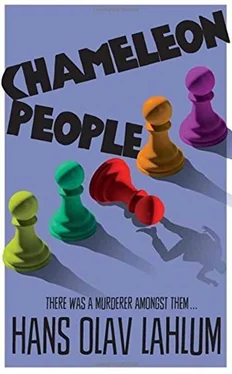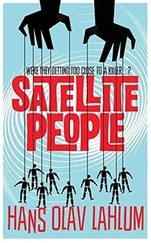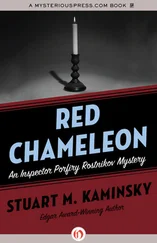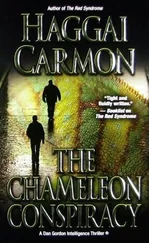‘Danielsen has some very bad news, and I have some very onerous information,’ my boss told me.
My blood turned to ice and my muscles froze. I sat there, immobile, and stared at Danielsen.
‘She is dead,’ he said, gravely.
‘Who?’ I almost shouted.
Danielsen realized his blunder and threw up his hands. ‘I am so sorry for putting it so badly. We know nothing more about your fiancée. But unfortunately the interpreter died during the operation at the University Hospital about half an hour ago. She did not regain consciousness. The bullet wounds would have been fatal, no matter how soon she had got to hospital, they said.’
I felt a paradoxical relief as soon as he said that it was the interpreter who had died. I had been terrified that he was talking about Miriam and it was a relief to know that nothing I could have done at the National Theatre would have saved the interpreter’s life. But I also felt pained on the part of the interpreter, and realized that this further reduced the chances of getting Miriam back. So I looked back at my boss, without saying anything.
‘My news is not necessarily bad, but both pieces of information are onerous. First, on hearing about the shooting at the National Theatre, the Government has postponed the ratification of the Barents Sea agreement in the Storting indefinitely. And second, the Soviet Embassy has just informed us that they take it very seriously indeed that one of their staff has been shot, and have requested a meeting with the head of the investigation as soon as possible.’
‘They have got something to hide and are playing with high stakes. I think we should first allow ourselves a couple of hours to think about this, and then all three of us should go,’ I said.
They both nodded. But my boss said that we could not delay it too long, with due respect, as he put it, to the embassy, the press, the Government and my fiancée. He suggested that he and I pay another visit to the head of the police security service at two o’clock, and that Danielsen should then come with us to the Soviet Embassy at four.
Danielsen and I quickly agreed. This would give the investigation three hours to produce some evidence – and me three hours to think about the decision I would have to make should no evidence materialize.
Nothing more happened between one o’clock and a quarter to two. I sat in my office and waited for a telephone call with good or bad news about Miriam. I had no idea where it would come from though, and, of course, it did not come.
So I sat there alone thinking about what Patricia had said. I found no other explanation that fitted as well as hers, and it seemed more and more likely that she was right. But I could not be sure, and to confront the Soviet Embassy without any evidence was a horrifying prospect.
At the same time it felt like I had a duty to try everything I could to bring Miriam back, without worrying about what the consequences might be for me. She had apparently been kidnapped because of her connection to me, while trying to help me solve the hardest murder case I had ever worked on.
And yet: the thought of being shown to be bluffing, having accused the Soviet Embassy of kidnapping, was terrifying, not least after my last meeting with the vice-ambassador. My career, thus far successful, could crash-land in a scandal if this got out, and result in me being fired. This was a day when I could lose everything: my fiancée, my position and my reputation.
The visit to Victoria Terrace at two o’clock did little to help. Asle Bryne again expressed his guarded sympathy for the situation I found myself in, but could not offer any assistance. He nodded, almost eagerly, to the theory that Soviet agents were behind the kidnapping and today’s murder, and believed that the ‘communists’ were in all likelihood also behind the murders of both Per Johan and Vera Fredriksen. But he had no evidence to substantiate it.
When the question of how the spy allegations had ended up in the press was raised, Asle Bryne again lit his pipe and categorically denied that the leak could have come from the ranks of the police security service. He refused, slightly apologetically and very demonstratively, to give the identity of the police security service’s source with regard to the Fredriksen spy claims. However, when I asked him directly, he could confirm that the source had not been the interpreter, whom he maintained was totally unknown to him and the police security service.
I was back in the office by half past two and once again, sat alone with my dilemma. At a quarter to three, I rang Patricia to tell her about the latest development. I could hardly hope that she had any evidence. And indeed, she did not. She did, however, go to unexpected lengths to advise me as to what I should do.
‘You have to do it. I am more and more convinced that I am right, and it could save your fiancée’s life,’ she said.
I said that I had to think about it, and that it felt like leaping into the unknown.
‘Remember that you can always rely on my support, even if everything goes wrong,’ she said, finishing our telephone call at five to three.
Again I sat there and pondered. To begin with, I was deeply touched by Patricia’s care and consideration for both Miriam and myself. Then I thought about what she had said in parting, and again, I wondered what her motive was. It struck me that Patricia, from her perspective, was perhaps manufacturing a win-win situation, where she would either become my hero because she was right, or would be the only person who would still support me if I lost both my fiancée and my job. I could not bring myself to believe that she really would think the latter, but whatever the case, it was a far more painful alternative for me than for her. So in the midst of it all, I harboured a vague doubt as to Patricia’s intentions. And in a strange way, I was now fighting with a bad conscience about both Patricia and Miriam.
Two further conversations did not make things any easier or the pressure any less. Miriam’s mother rang to ask me if there was any news. I told her that the interpreter had died and that I was going to the embassy in an hour, but there was no news, for better or worse, about Miriam herself. Her mother finished by saying: ‘We’re losing hope. But we are very grateful for everything you are doing.’ There is no doubt that she meant well, but it did not make my situation any easier. I sat with the telephone in my hand, feeling ever gloomier and more and more uncertain.
Two minutes later, a woman from the switchboard knocked on my door. She said that the newspapers had started to ring and asked if it was true that my fiancée had disappeared, and if so, might it have something to do with the Fredriksen case, the day’s murder and the oil agreement?
I asked her to come with me to Danielsen’s office. We quickly agreed on a two-line standard response: we confirmed that my fiancée was missing and that an investigation was underway, but that it was too early to comment on what had happened.
The switchboard lady then took this back with her. I stood and looked questioningly at Danielsen. He shook his head a fraction.
‘Nothing more to report, I’m afraid. We do not know any more about your fiancée, but we do know a bit more about the interpreter. According to the embassy, she lived in a studio flat not far from the embassy itself, but her landlady had not seen her since yesterday morning. A hotel on one of the side streets off Karl Johan called after the announcement of her death to say that they thought she had booked in there overnight. A slightly out-of-breath young woman had suddenly shown up there the evening before, without a reservation and without any luggage. She had paid in cash and seemed very nervous. She said she was called Hanne Hansen and spoke very good Norwegian, but did not have any ID and the receptionist noticed some Russian letters on her jacket. She went down to the reception twice in the evening and once again in the morning to make some short phone calls. Otherwise, as far as the hotel knew, she stayed in her room until she checked out at a quarter past eleven. A man had called in the morning and explained that his mentally unstable wife had run away, but they refused to give out any information about their guests. This enquiry could well have been about the interpreter and would indicate that they were looking for her. But it is still not hard evidence.’
Читать дальше












